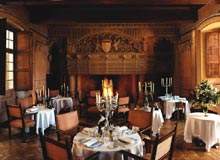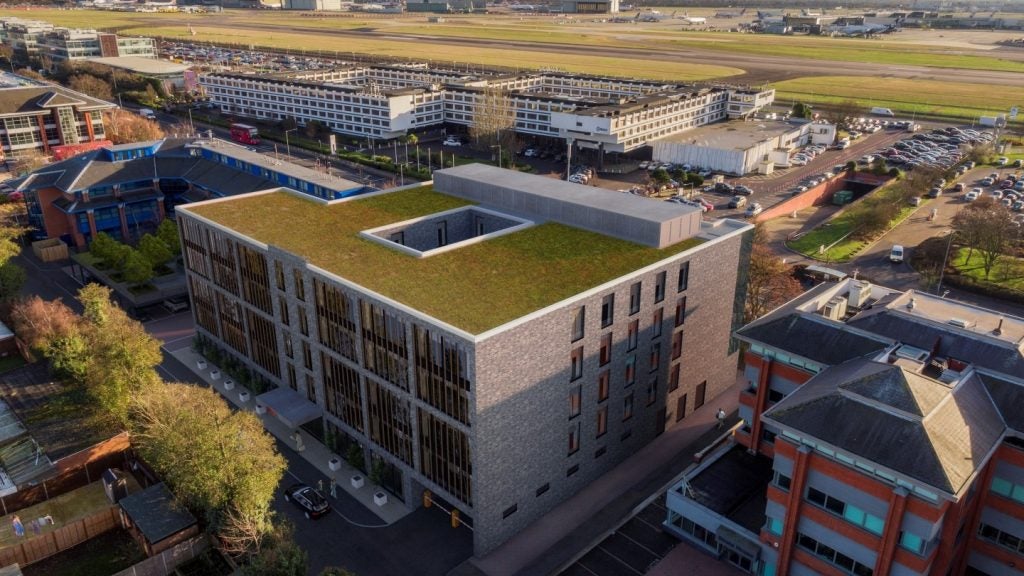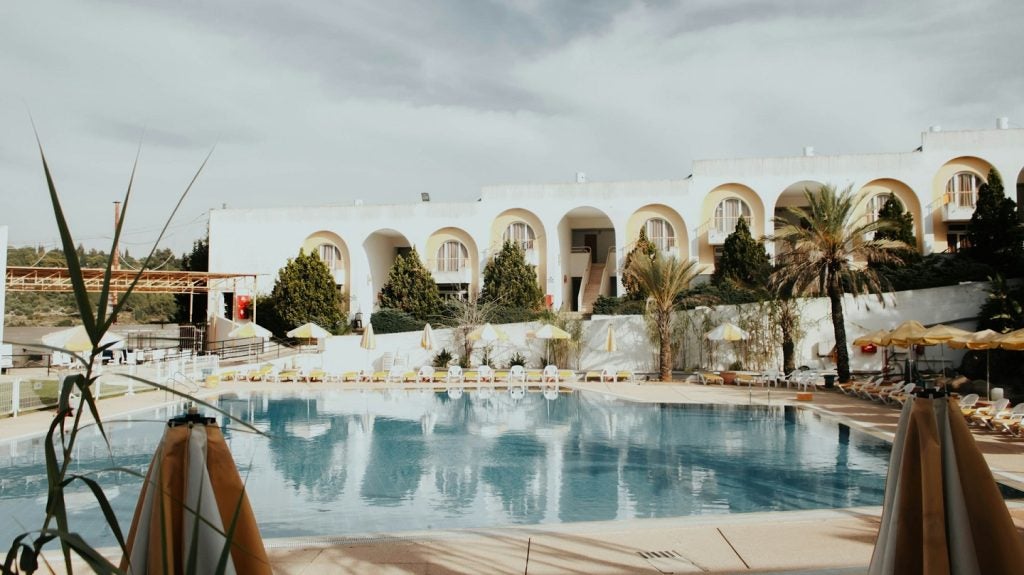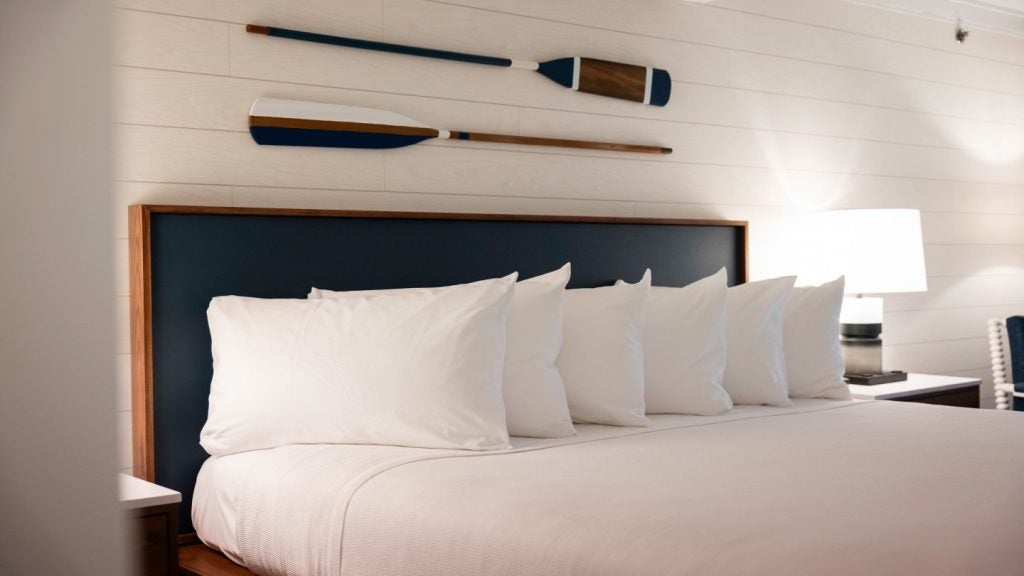
CHATEAU DE BAGNOLS LYON, FRANCE
The five-star Chateau de Bagnols prides itself on its individual service, which includes daily chats with the chef and a personalised menu during a guest’s stay. Heralded as France’s finest deluxe chateau, the thirteenth-century hotel is set among vineyards, forests and green hills in the heart of the Beaujolais countryside. Managed by Rocco Forte Hotels, it has been voted the Best Small Hotel of the Year by Tatler magazine and was awarded the Prix Villegiature 2004 – Best Service in a Hotel in Europe.
Delphine Gilles, a spokeswoman for the 21-bedroom chateau, says she finds guests are increasingly expecting their individual tastes and health requirements to be catered for. A recent example includes a party of 20 English guests on a one-night stopover while on a luxury car rally to the South of France.
With advance notification, the chef Matthieu Fontaine drew up a dinner menu with separate dishes to cater for a wheat allergy, a dairy-free diet, a vegetarian, guests who ate no uncooked eggs, people who ate no meat and no fish, one who ate no fish and another who ate no seafood. This meant providing a variety of different dishes or creating several versions of a dish to meet all the different requirements. Every dish was prepared without butter and used only vegetable oils such as olive and grapeseed oil. “At least a quarter of the people in the party required a special diet, so we catered for this in the welcome drinks and cocktails, dinner that night, breakfast and picnics for the next day,” says Gilles.
DETAILED RESERVATION PROCEDURE
The process of making a reservation at the chateau takes about 20 minutes as guests are asked about personal preferences so that, whenever possible, menus can be planned and catered for in advance by the kitchens. “We are very sensitive to personal diets and cater for a lot of people with special diet requirements,” says Gilles. “We will have the chef make a special menu for them and the chef talks to the guests each day. The dining room has a capacity of 40 so it’s easy to personalise, and when we have long-stay guests they can devise menus with the chef using foods they prefer.”
About 5% of guests request individual menus, with the majority catering for non-meat, non-fish, non-seafood, vegetarian, vegan, non-wheat or non-dairy diets, as well as particular health requirements such as allergies or intolerances. This is in addition to an already extensive choice on the menu at the restaurant, the Salles des Gardes.
Gilles says the individual attention to detail encourages guests to return: “I think most of our guests come back because of service and attention to detail, and the food is part of that. We are in a good position because we are really, really getting into the details deeply, and many hotels won’t go that far. We are able to cater for individuals because we are relatively small with a high proportion of staff to guests, but I think more hotels will have to go that way because people want it. More and more people have special requirements for food so we are getting asked more and more often. People don’t hesitate to ask for what they want now, when before they would have just not eaten.” The personalised service also extends to wine, with the sommelier buying in bottles and vintages requested by return guests, which has recently included a Cheval Blanc 1992 from Bordeaux.
How well do you really know your competitors?
Access the most comprehensive Company Profiles on the market, powered by GlobalData. Save hours of research. Gain competitive edge.

Thank you!
Your download email will arrive shortly
Not ready to buy yet? Download a free sample
We are confident about the unique quality of our Company Profiles. However, we want you to make the most beneficial decision for your business, so we offer a free sample that you can download by submitting the below form
By GlobalDataMuch of the success is due to chef Matthieu Fontaine, who joined the chateau in March 2003 and is committed to using local and seasonal produce and slow cooking methods. He is devoted to his job and insists ‘nothing is too much trouble’ for his guests.
FOUR SEASONS HOTEL MILAN, ITALY
At Milan’s Four Seasons Hotel, the demand for personalised menus often comes from clients from the Middle East, who will occasionally even bring along their own chefs. The exclusive 118-room hotel is used to guests having particular tastes and dietary needs and is more than happy to prepare dishes and menus in advance, or at a moment’s notice in its main restaurant, Il Teatro.
“We have groups from the Middle East who have special requirements in the way their food is prepared and specific diets, so they send a list in advance,” says Olivier Gerber, assistant director of food and beverage at the five-star Italian hotel. “They want to eat the local cuisine they are used to in the Middle East so we work with a chef who is familiar with the region and put together specific menus for every meal during their stay.”
FAMOUS CLIENTELE
Guests from the Middle East have included a member of a royal family who had a special diet and a list of foods he was unable to eat due to allergies. Gerber said another individual guest was a famous entrepreneur from the USA who had a special diet due to medical complaints and faxed ahead a four-page list of foods he was unable to eat. “We circulate these lists among the staff in all the outlets, the chefs, the kitchen, the bar and room service so they are always ready to take it into account,” says Gerber. “Generally guests can request any ingredient to be removed or substituted whenever they are ordering.”
While advance notice is helpful for larger groups requiring particular ingredients, Gerber said they are ready to adapt menus and dishes at a moment’s notice. “The menus are really there to give ideas to the guests about what to eat,” he says. “For example, if you have pasta with seafood on the menu and the guest wants it with tomatoes then that is fine; we are very flexible as long as we have the produce in-house.”
The kitchen also maintains a stock of gluten-free pasta to cater for the increasing number of guests with intolerances. Executive chef Sergio Mei, named Italian Cook of the Year in 1998, has specialised in vegetarian cuisine and extended the number of options available in response to what he foresaw would be a growing trend. And there is no extra charge for guests requiring this personal service, unless it involves bringing in an external chef to create specific dishes.
About 15% to 20% of guests do ask for specific catering as more people become conscious of what they eat. And although the hotel has always historically had a high demand for individual service there is now a tendency for men to take an interest in their diet, particularly among the fashion and music guests frequenting the hotel. And the hotel’s level of attention to guests’ needs is bearing fruit. “The service creates loyalty and our guests know they can go to any Four Seasons hotel, ask specifically for what they want and get it – it certainly encourages people to come back,” says Gerber.
ST DAVID’S HOTEL AND SPA CARDIFF, WALES
Located on the waterfront at Cardiff Bay, the five-star St David’s Hotel and Spa encourages guests to take a healthy interest in their diet. The 132-room and 20-suite hotel regularly creates individual menu plans for guests with allergies, special health needs, religious beliefs, vegetarians or personal preferences. It is also home to a large spa and health centre. The resort employs a nutritionist who provides tests to detect allergies and draws up healthy-eating plans that can then be followed at the hotel.
Susan Anderson of St David’s says recent examples of personalised menus include a strict vegetarian meal for a party of 14 family and friends on Christmas Day. This menu forbade the use of any animal-based gelatine. The starters included dishes such as wood mushroom cocktail with cranberry vinaigrette and stuffed eggs with mustard cress on French vegetable mayonnaise with fresh salads and homemade dressings. Hot food included Skahshuka, a Yemenite egg and bell pepper dish flavoured with cumin, and potato latkes with apple sauce, while the desserts of Christmas pudding, chocolate marquise tart, mandarin mousse and mince pies were all specially produced at the hotel.
Another large-scale catering operation was a ‘non-offensive menu’ for a Bah Mitzvah with no meat, turbot or shellfish and no dairy served produce with the fish. Guests with special needs have included two corporate clients with a lacto-ovo allergy – requiring eggs and no milk. Another corporate guest who works in Cardiff is coeliac and has to avoid wheat. She now regularly returns to the hotel, as it caters for her special needs. Anderson says: “As we got to know the guest we started to provide bread for her and the chef used to call her each evening to discuss what she would like to eat.”
CHEF-DINER COMMUNICATION
Executive chef Georg Fuchs, who joined the hotel from London’s Savoy Hotel last year, takes it all in his stride. “I am always pleased to meet with individual guests to create a menu that meets dietary or culinary needs,” he says. “In time, it is also our intention to share with customers our methods and recipes for all manner of dishes in our restaurant, which are sourced from the finest suppliers in Wales.”
Anderson says that the more notice guests give the better, but even at short notice the chefs suggest items on the menu which are suitable, adapt them slightly or if necessary make something to order. “It’s a five-star hotel so I think people want to know they can have personal attention. I think people are more comfortable these days in asking for assistance if they have an allergy or a particular diet requirement. In the past they would have just looked through the menu and tried to judge for themselves what they could or could not eat.”
Guests at the hotel can also create individual diet plans and advice following an in-depth consultation with a nutritionist. They use the Bio Energetic Stress Tester (BEST), which uses a current passed through the body to test for intolerances to more than 100 foods and deficiencies in vitamins and minerals. It can help to identify diets to alleviate conditions such as migraine, eczema, psoriasis, fatigue and stress.
It is this growing acknowledgement of a link between medical conditions and diet that is giving rise to more and more individual requests in hotels. In turn, by adopting a flexible and accommodating approach, top hoteliers are finding their guests are keeping healthy – and returning to the establishments that help them to stay that way.







